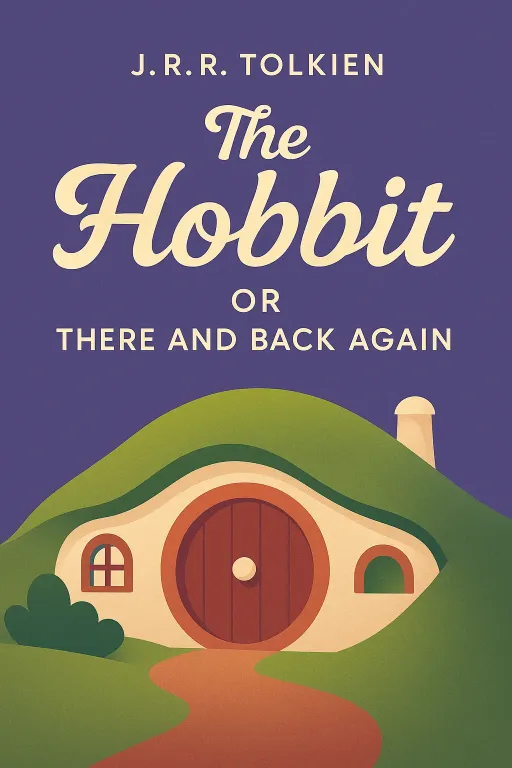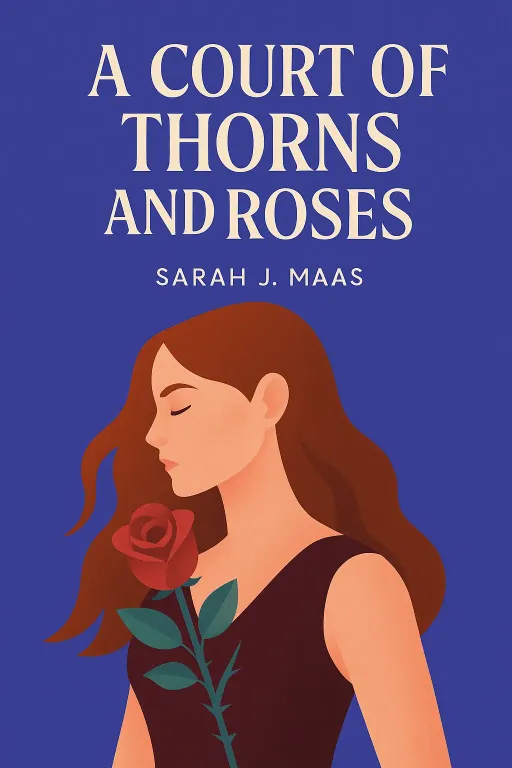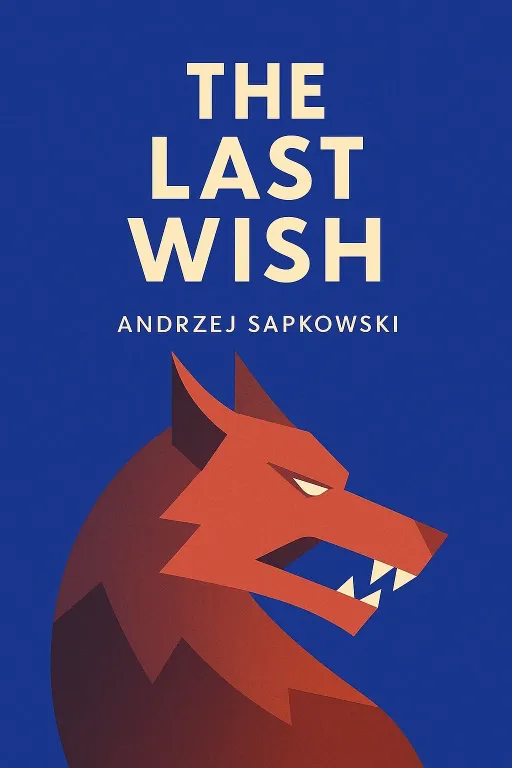
The Hobbit or There and Back Again
10 minIntroduction
Narrator: What if the greatest adventure of a lifetime began not with a grand summons, but with an unwanted knock on a perfectly round, green door? Imagine a creature of immense comfort, a hobbit named Bilbo Baggins, who values a well-stocked pantry and a warm hearth above all else. His life is one of predictable, peaceful routine, and he has no use for "nasty disturbing uncomfortable things" like adventures. Yet, it is this very hobbit who is thrust into a perilous quest to face a dragon and reclaim a lost treasure. This is the central journey of J.R.R. Tolkien's classic, The Hobbit or There and Back Again, a story that explores how the most ordinary individuals can possess extraordinary courage, and how leaving the comfort of home is the only way to truly find oneself.
The Unwanted Call to Adventure
Key Insight 1
Narrator: The story begins by establishing Bilbo Baggins as the epitome of respectability and comfort. His hobbit-hole is not a dirty, wet hole, but a place of warmth, food, and peace. This tranquility is shattered by the arrival of the wizard Gandalf, followed by thirteen dwarves, one after another, who unceremoniously invade his home. Led by the proud and determined Thorin Oakenshield, they have a singular goal: to reclaim their ancestral home and treasure in the Lonely Mountain, which was stolen generations ago by the fearsome dragon, Smaug.
The dwarves, skeptical of the small, flustered hobbit, are only convinced of his utility by Gandalf's insistence. The wizard sees a hidden spark in Bilbo, a dormant adventurous spirit inherited from his Tookish ancestors. He declares Bilbo their "burglar," the fourteenth member of their company, much to Bilbo's own horror. The dwarves' song of their lost gold and distant lands awakens something in him, a faint desire that wars with his sensible Baggins nature. This internal conflict—the pull of the comfortable and known versus the terrifying allure of the unknown—sets the stage for Bilbo's entire journey. He is not a willing hero, but one pushed out the door into a world far larger and more dangerous than he ever imagined.
The Perils of the Wild
Key Insight 2
Narrator: Once on the road, the reality of the adventure quickly dispels any romantic notions. The journey is not one of pleasant walks and scenic views; it is marked by hardship, bad weather, and dwindling supplies. The first true test comes in the form of three monstrous trolls: Tom, Bert, and William. Sent to investigate their campfire, Bilbo’s attempt at being a burglar nearly ends in disaster when he is caught trying to pick a troll's pocket. The dwarves, arriving one by one to investigate, are promptly captured and tied in sacks, destined to be the trolls' next meal.
It is here that the company's vulnerability is exposed. Without Gandalf, they would have been doomed. The wizard, who had temporarily left the group, returns at the crucial moment. He doesn't use overwhelming force but cunning, perfectly mimicking the trolls' voices to set them arguing amongst themselves. They bicker over how to cook the dwarves until the sun rises, and the first rays of dawn turn the creatures to stone. This encounter serves as a vital lesson: brute force is not always the answer, and cleverness, a quality Bilbo possesses in spades, is an invaluable asset. It also reinforces Gandalf's role as a guide and protector, whose wisdom is essential for their survival.
A Game of Wits in the Dark
Key Insight 3
Narrator: The journey's most pivotal moment for Bilbo occurs when he is at his most lost and alone. After being captured by goblins in the Misty Mountains and separated from the dwarves during a frantic escape, Bilbo awakens in the pitch-black tunnels. As he stumbles through the darkness, his hand finds a small, cool metal ring, which he pockets without a second thought. Soon after, he encounters Gollum, a wretched, pale-eyed creature who lives on a slimy island in a subterranean lake.
Gollum, seeing Bilbo as a potential meal, proposes a game of riddles. If Bilbo wins, Gollum will show him the way out; if Gollum wins, he will eat Bilbo. A tense battle of wits ensues. Bilbo, drawing on his hobbit-lore, matches Gollum's dark and ancient riddles. For his final, desperate question, Bilbo unthinkingly asks, "What have I got in my pocket?" Gollum, unable to guess, is furious. He goes to retrieve his "Precious," a magic ring, to help him kill and eat Bilbo, only to discover it is gone. Realizing Bilbo must have it, Gollum's rage is absolute. In the ensuing chase, Bilbo accidentally slips the ring on his finger and discovers its power: it makes him invisible. This chance discovery not only allows him to escape Gollum and the goblin tunnels but fundamentally changes his role in the quest.
The Burglar Comes of Age
Key Insight 4
Narrator: Armed with his new secret, Bilbo's confidence and value to the company grow immensely. His transformation from a burden to a hero is solidified in the dark forest of Mirkwood. After being lured off the path by phantom elven feasts, the dwarves are captured by giant spiders and hung in webs, slowly being poisoned. Bilbo, using his ring, is able to sneak up on the spiders. He uses his small sword, which he names Sting, to cut the dwarves free, all while taunting the spiders and leading them on a wild chase. For the first time, the dwarves see him not as a grocer from the Shire, but as a clever and courageous leader.
His resourcefulness is tested again when the dwarves are captured by the Wood-elves and imprisoned in the Elvenking's halls. Thorin, proud and stubborn, refuses to reveal their quest, leading to a long imprisonment. It is Bilbo, the invisible burglar, who discovers a way out. He learns that the elves send empty wine barrels down the river to Lake-town. He devises a daring plan, packing each dwarf into a barrel and sending them floating to freedom, a feat that would have been impossible without his courage, stealth, and ingenuity.
The Dragon's Greed and the Hobbit's Guile
Key Insight 5
Narrator: Upon finally reaching the Lonely Mountain, the company finds the secret door, and the most dangerous task falls to Bilbo. He must venture inside and scout the lair of Smaug. Steeling his nerves, he creeps down the passage and beholds the magnificent, terrifying sight of the dragon sleeping upon a mountain of treasure. Overcome by a sudden boldness, he steals a single golden cup. This act, while proving his worth as a burglar, awakens Smaug's fury. The dragon knows his hoard down to the last piece and erupts from the mountain in a fiery rage.
Later, Bilbo ventures back inside for a second, even more perilous encounter. Using his invisibility and speaking in riddles, he engages the vain dragon in conversation. Smaug, arrogant and boastful, shows off his diamond-encrusted underbelly, inadvertently revealing a single bare patch on his left breast—a fatal weakness. Bilbo's courage and quick-wittedness provide the crucial piece of information that will ultimately lead to the dragon's downfall, though it also enrages Smaug to the point that he flies off to unleash his vengeance upon the people of Lake-town.
The War for the Treasure
Key Insight 6
Narrator: Smaug's death at the hands of Bard of Lake-town does not bring peace, but rather a new conflict. The vast, unguarded treasure becomes a magnet for greed. The men of Lake-town, whose homes were destroyed, and the Elvenking, who aided them, march to the mountain to claim a share. Thorin, however, becomes consumed by "dragon-sickness." The treasure hardens his heart, and he refuses to part with a single coin, barricading himself inside the mountain.
Bilbo, horrified by the prospect of a war between his friends, performs his bravest act yet. He sneaks out of the mountain and gives the Arkenstone, the gem Thorin desires above all else, to Bard and the Elvenking to use as a bargaining chip. This act of betrayal, done for the sake of peace, enrages Thorin. Just as the dwarves, elves, and men are about to clash, a new threat emerges: a massive army of goblins and Wargs, seeking revenge and treasure. The former enemies are forced into a desperate alliance, and the Battle of Five Armies begins. The conflict is brutal, and Thorin is mortally wounded while leading a valiant charge. In his final moments, he reconciles with Bilbo, realizing too late that food, cheer, and song are worth more than all the gold in the world.
Conclusion
Narrator: The single most important takeaway from The Hobbit is that true growth is born not from comfort, but from facing the unknown. Bilbo Baggins begins his journey as a hobbit who believes adventures are simply disruptive. Yet, by being pushed beyond the borders of his quiet life, he discovers a depth of courage, wisdom, and resourcefulness he never knew he possessed. He returns to the Shire a fundamentally changed person, no longer just a Baggins of Bag End, but an elf-friend, a ring-finder, and a hero who has looked a dragon in the eye.
The story leaves us with a profound question about our own lives. We all have a comfortable "Baggins" side that prefers safety and routine, but we also have an adventurous "Took" side, a quiet yearning for the mountains and the wild. The Hobbit challenges us to consider what might happen if we, just once, answered that unexpected knock on the door.

